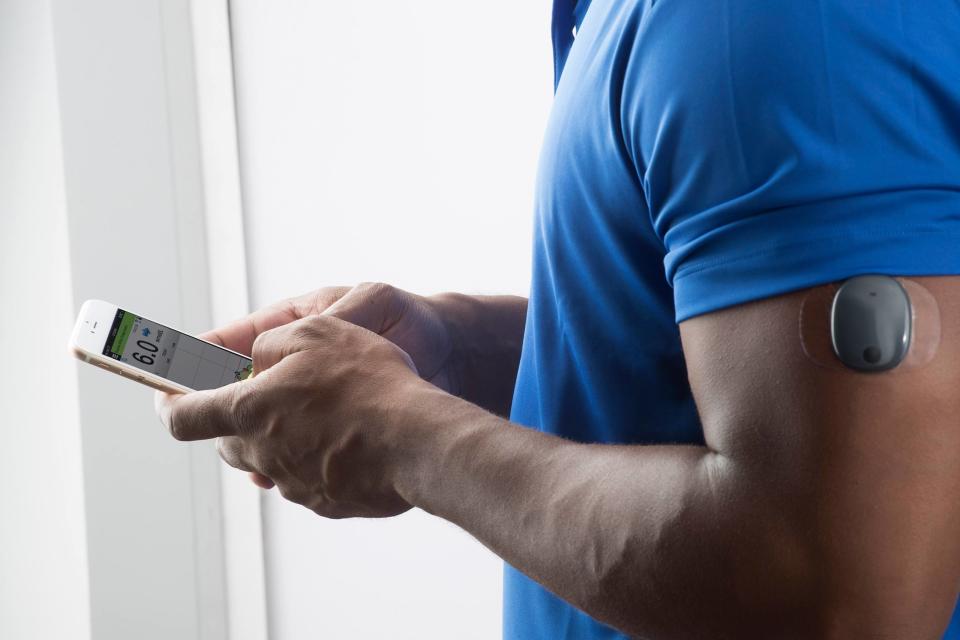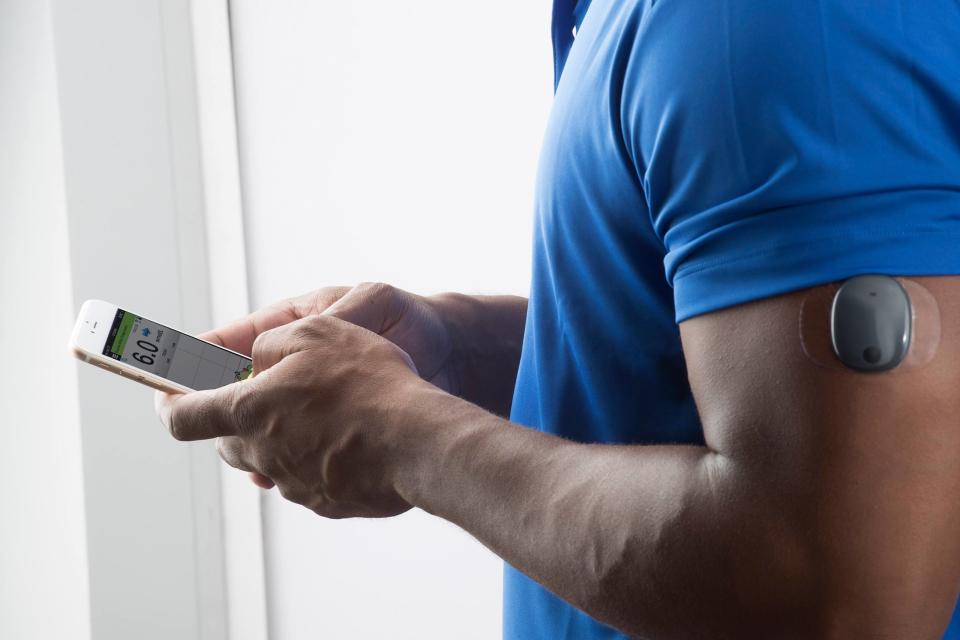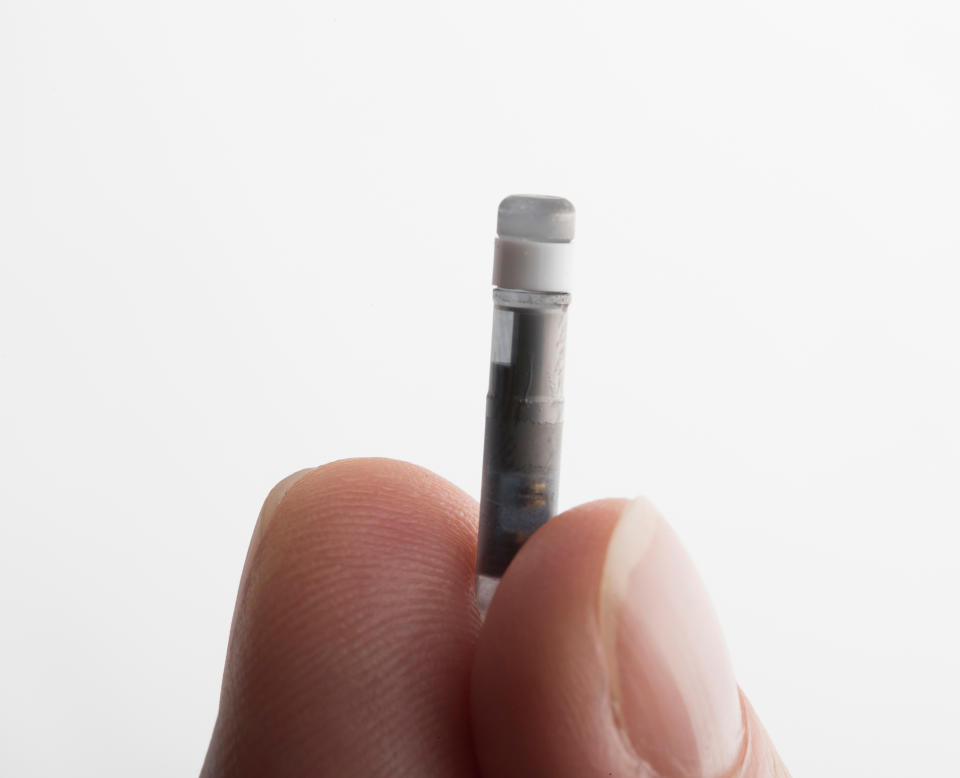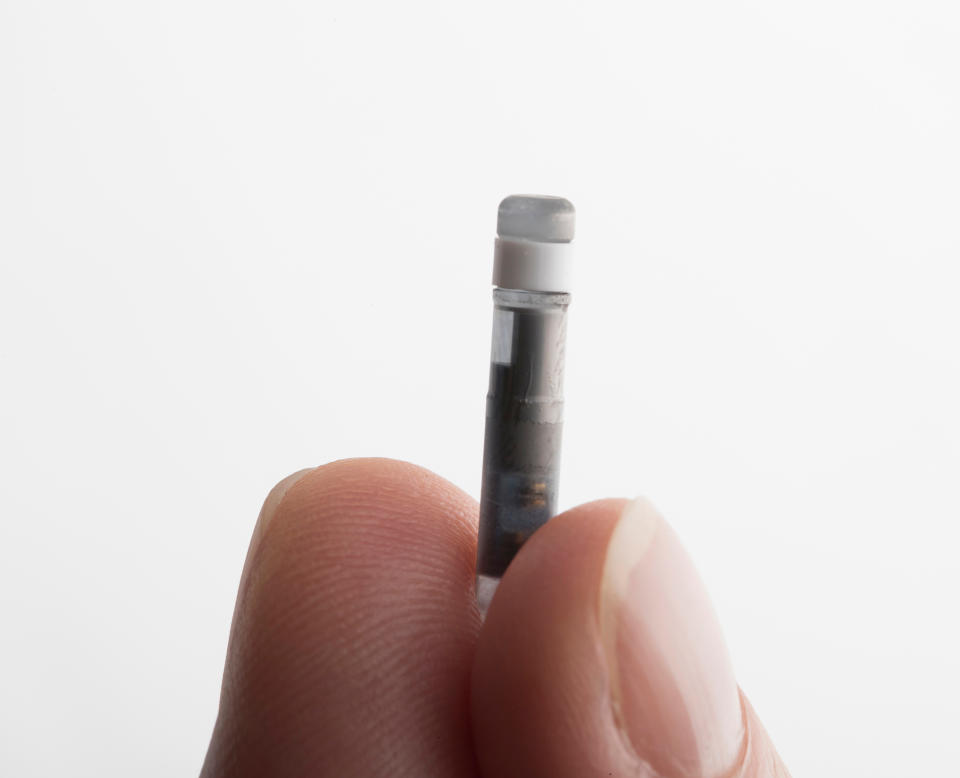FDA approves implantable glucose monitor that lasts for 90 days
Eversense is the first FDA-approved implantable glucose sensor.
A year ago, the FDA implemented new, streamlined regulations for digital devices. One of them is a continuous glucose-monitoring (CGM) system the FDA just approved that sends data from an implantable sensor to a paired mobile app, letting patients see their levels on their smart device. Once it's inserted by a medical professional, it can stay in the body for up to 90 days, which is far longer than comparable external sensors that typically must be swapped out around the ten-day mark. It's the first implantable CGM approved by the agency.
The caveat is that only qualified health care providers may insert and retrieve the implant. It rests just inside the patient's skin and is coated with a fluorescent chemical that produces light when exposed to glucose so it can read whether the body's levels are too high (hyperglycemia) or low (hypoglycemia). Measurements are sent to the paired app every five minutes.

The FDA cleared the Eversense system, as it's called, after a 125-person study reported that less than one percent of participants reported serious adverse reactions to the implant. This CGM system has another post-approval study slated, but an FDA advisory committee unanimously recommended that the Eversense's benefits outweighed the risk. But the initial report didn't indicate whether it was indeed more accurate than previous non-implanted setups. Until then, there are other digital monitoring options the agency has approved, like the FreeStyle Libre, that patients can insert themselves -- but that must be replaced within 10 days.




